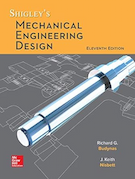The Importance of Soft Skills in Engineering
Engineering is a highly technical and scientific field, requiring a vast knowledge of mathematics, physics, and other natural sciences. However, it is not enough to only have a deep understanding of technical skills in order to be successful in the field of engineering. In today's ever-changing work environment, the ability to communicate effectively, work in a team, lead others, and adapt to new situations is becoming increasingly crucial. These skills, commonly referred to as soft skills, play a vital role in the success of engineers and their careers.

Communication Skills
One of the most important soft skills for engineers is effective communication. Whether it be presenting ideas to colleagues, working with clients, or communicating with team members, the ability to clearly and effectively convey information is crucial. Engineers often work on complex projects that involve multiple stakeholders, and clear communication can ensure that everyone is on the same page, reducing the risk of mistakes and increasing efficiency.
Leadership and Teamwork
Leadership skills are another important soft skill for engineers. As engineers progress in their careers, they may find themselves in management positions, leading teams and projects. In these roles, the ability to motivate and direct others, while also being able to work well within a team, is crucial. Engineering projects often require collaboration between multiple stakeholders, including other engineers, technicians, and clients, and the ability to lead and work well with others is essential for success.
Adaptability
The field of engineering is constantly evolving, and engineers must be able to adapt to new technologies, processes, and industry standards. The ability to quickly learn new skills, be flexible and adapt to change, and continuously improve are all important soft skills for engineers. In addition, engineers must be able to think critically and creatively, and be able to apply new ideas and approaches to their work.
Problem-Solving Skills
Problem-solving skills are at the core of engineering. Engineers must be able to analyze complex problems, identify the root causes, and develop solutions that meet the needs of their clients and stakeholders. This requires a combination of technical knowledge, creativity, and strong communication skills, as well as the ability to work well under pressure and manage deadlines.
Time Management
Time management is another important soft skill for engineers. Engineering projects often have tight deadlines, and engineers must be able to effectively manage their time and prioritize their tasks in order to meet these deadlines. This requires good organizational skills, as well as the ability to stay focused and avoid distractions.
PDH Classroom offers a suite of online continuing education courses tailored to engineers. These courses can be used to fulfill PDH credit requirements for maintaining your PE license, or just as a part of staying ahead in your field.
While technical skills are certainly important in engineering, soft skills are also essential for success. The ability to communicate effectively, lead and work well in a team, adapt to change, solve problems, and manage time are all critical skills for engineers. By developing and honing these skills, engineers can enhance their careers and be better equipped to meet the challenges and opportunities of the modern engineering field.




